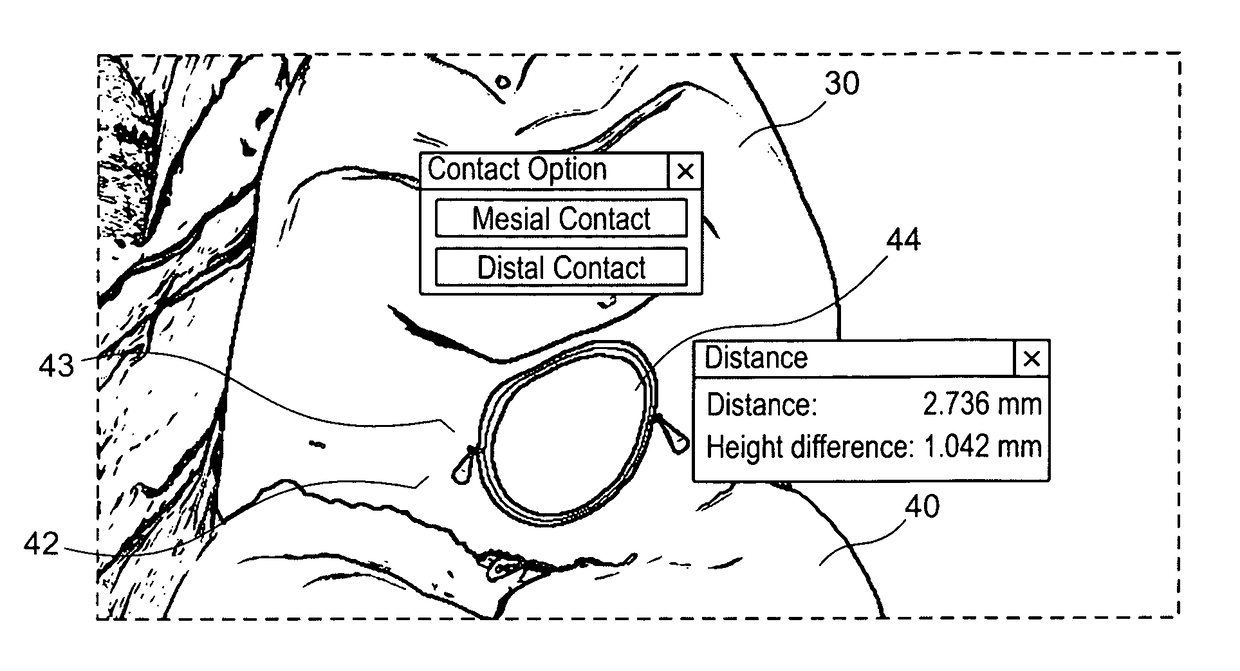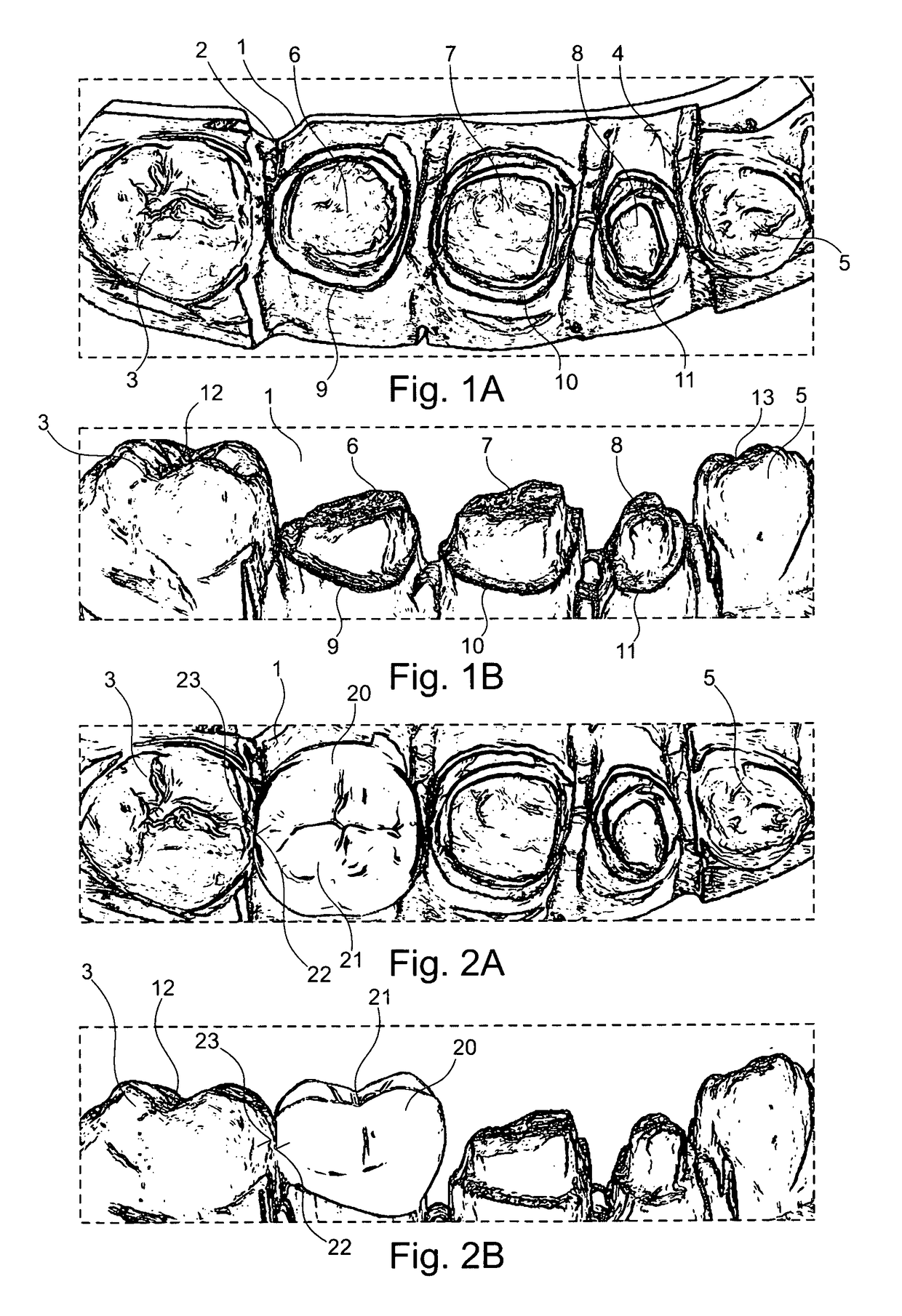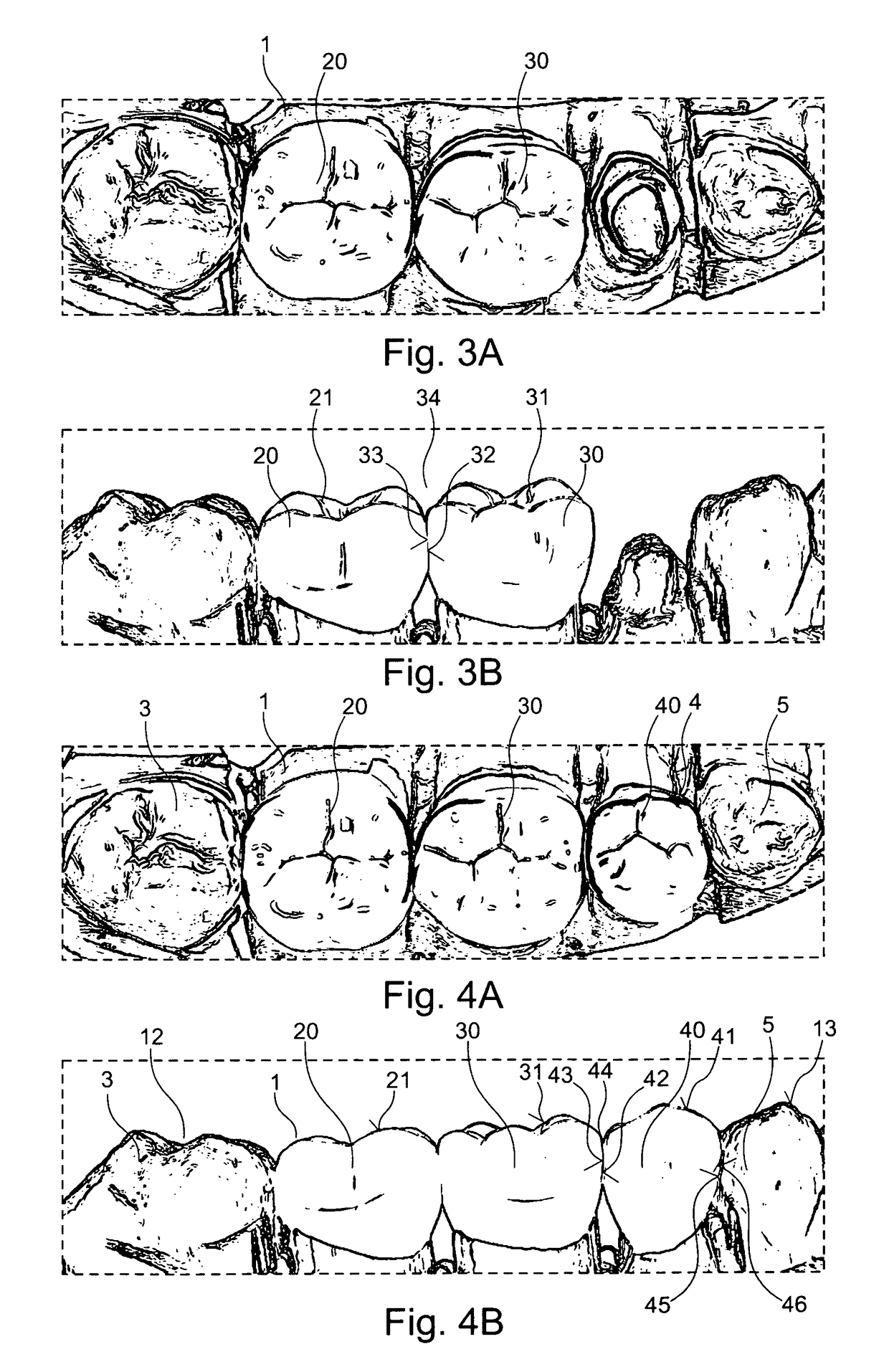Method for designing a plurality of adjacent tooth restorations using CAD/CAM technology
a technology of adjacent tooth and camera, applied in the field of cad/cam technology, can solve the problems of time-consuming and complicated production and insertion of tooth restorations individually, laborious procedures, and inability to accurately fit tooth restorations, so as to reduce the stability of the bridge and even the stress acting
- Summary
- Abstract
- Description
- Claims
- Application Information
AI Technical Summary
Benefits of technology
Problems solved by technology
Method used
Image
Examples
Embodiment Construction
[0072]FIG. 1A is a top view of a restoration site 1 comprising five teeth. A first abutment tooth 3 is located next to the first border 2 of the restoration site 1 and a second abutment tooth 5 is located on the opposing, second border 4 of the restoration site 1. Prepared teeth 6, 7, and 8, which have been prepared for accommodation of tooth restorations, are located between the two abutment teeth 3 and 5. The prepared teeth 6, 7, and 8 have a stepped shape but have not been altered beyond the preparation margins 9, 10, and 11.
[0073]FIG. 1B shows a side view of the 3D image shown in FIG. 1A, of the preparation site 1 and the abutment teeth 3 and 5. The restorations for the prepared teeth 6, 7, and 8 must be designed such that they attain the height of the occlusal surface 12 of the abutment tooth 3 and the occlusal surface 13 of the abutment tooth 5 and must fit laterally between the abutment teeth 3 and 5, while their occlusal surfaces must mate with those of the opposing teeth in...
PUM
 Login to View More
Login to View More Abstract
Description
Claims
Application Information
 Login to View More
Login to View More - R&D
- Intellectual Property
- Life Sciences
- Materials
- Tech Scout
- Unparalleled Data Quality
- Higher Quality Content
- 60% Fewer Hallucinations
Browse by: Latest US Patents, China's latest patents, Technical Efficacy Thesaurus, Application Domain, Technology Topic, Popular Technical Reports.
© 2025 PatSnap. All rights reserved.Legal|Privacy policy|Modern Slavery Act Transparency Statement|Sitemap|About US| Contact US: help@patsnap.com



